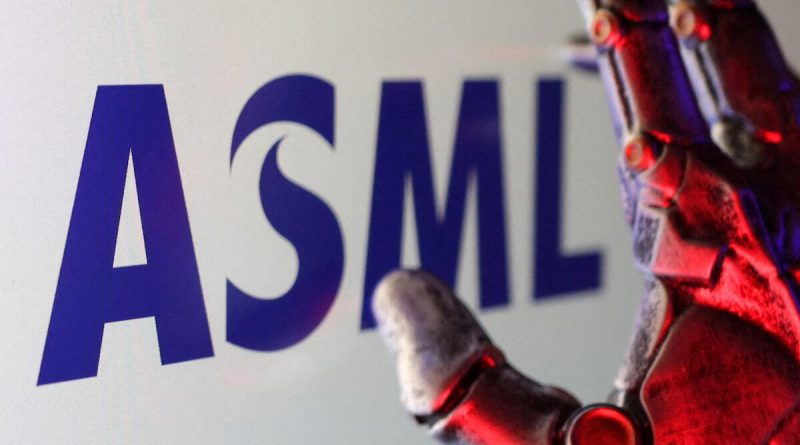Global AI Boom Powers ASML’s Strong Performance Despite Shifting China Outlook
Eindhoven — ASML, the world’s leading manufacturer of advanced chip-making equipment, reported stronger-than-expected third-quarter orders, driven by the global surge in artificial intelligence (AI) investments.
While the company anticipates softer demand from China in 2026 due to evolving market dynamics and export restrictions, executives and analysts alike remain optimistic that ASML’s leadership in cutting-edge semiconductor technology positions it for sustained long-term growth.
ASML’s net bookings — a key indicator of future demand — reached €5.40 billion ($6.27 billion) in the third quarter of 2025, slightly exceeding analyst expectations of €5.36 billion.
This performance underscores ASML’s continued dominance in the semiconductor equipment market and its vital role in powering the next wave of AI innovation across the globe.
CEO Christophe Fouquet emphasized that the company continues to see “positive momentum around investments in AI,” with growing demand from customers producing both advanced logic and memory chips — two core components of artificial intelligence computing.
“AI remains one of the strongest structural growth drivers for our industry,” Fouquet said, highlighting that ASML’s advanced lithography tools are essential to manufacturing the high-performance chips that power everything from data centers to autonomous vehicles.
ASML supplies its state-of-the-art lithography machines to leading global chipmakers such as TSMC, Intel, Samsung, SK Hynix, and Micron. These firms are ramping up production to meet booming global demand for semiconductors, particularly those required for AI processing and cloud computing.
TSMC, for instance, manufactures most AI chips for Nvidia, one of ASML’s key indirect customers, while Intel and Samsung are expanding their AI-focused semiconductor portfolios using ASML’s technology.
Despite expectations of a decline in China-related sales next year, largely due to export regulations and changing global trade conditions, ASML’s overall business remains strong and diversified.
China accounted for nearly one-third of new tool sales in the first nine months of 2025, and the company continues to maintain solid relationships with its Chinese clients, even as it rebalances its customer base toward regions such as Europe, the United States, and South Korea.
Industry analysts view ASML’s conservative 2026 guidance — predicting flat or slightly improved sales — as a strategic move to manage expectations amid global uncertainty.
“It could have been a stronger message,” said Michael Roeg of Degroof Petercam, “but given the company’s history of cautious forecasting, there’s potential for an upgrade early next year.”
Indeed, many expect that as AI and next-generation computing continue to accelerate, ASML’s sales and profitability will rise accordingly.
ASML reported third-quarter net income of €2.12 billion, in line with the consensus estimate of €2.11 billion, reflecting strong operational execution and steady demand across markets.
The firm remains one of Europe’s largest and most valuable technology companies by market capitalization, symbolizing the continent’s growing influence in the global semiconductor supply chain.
The broader context also supports ASML’s positive outlook. The recent surge in AI investments, with mega-deals between technology giants and chipmakers, is creating long-term structural demand for the company’s products.
Each AI data center, for instance, relies heavily on thousands of advanced chips — all of which require ASML’s high-precision lithography equipment to produce.
Moreover, ASML’s innovations in extreme ultraviolet (EUV) and deep ultraviolet (DUV) lithography systems continue to push the boundaries of chip performance and energy efficiency.
These technologies enable manufacturers to create smaller, faster, and more powerful semiconductors — a crucial advantage in an AI-driven era.
While challenges in the Chinese market remain, ASML’s diversification strategy and continued technological leadership ensure resilience.
The firm is expanding collaborations in the United States, Japan, and Europe, where governments are investing heavily in semiconductor manufacturing to boost local supply chains and reduce dependency on imports.
Ultimately, ASML’s strong quarterly performance reflects both its unmatched innovation and the enduring global demand for semiconductors.
Even as the company navigates shifting geopolitical landscapes, it remains at the center of the world’s AI revolution — powering progress, enabling connectivity, and shaping the future of technology.


